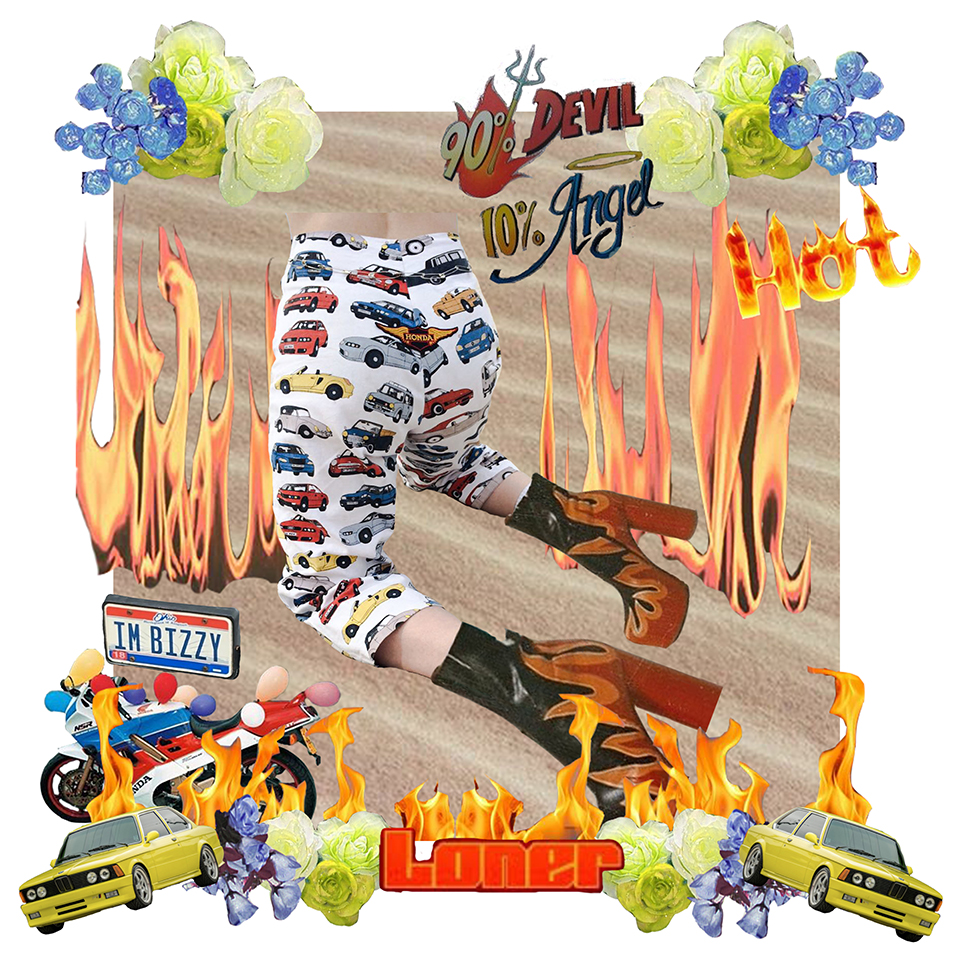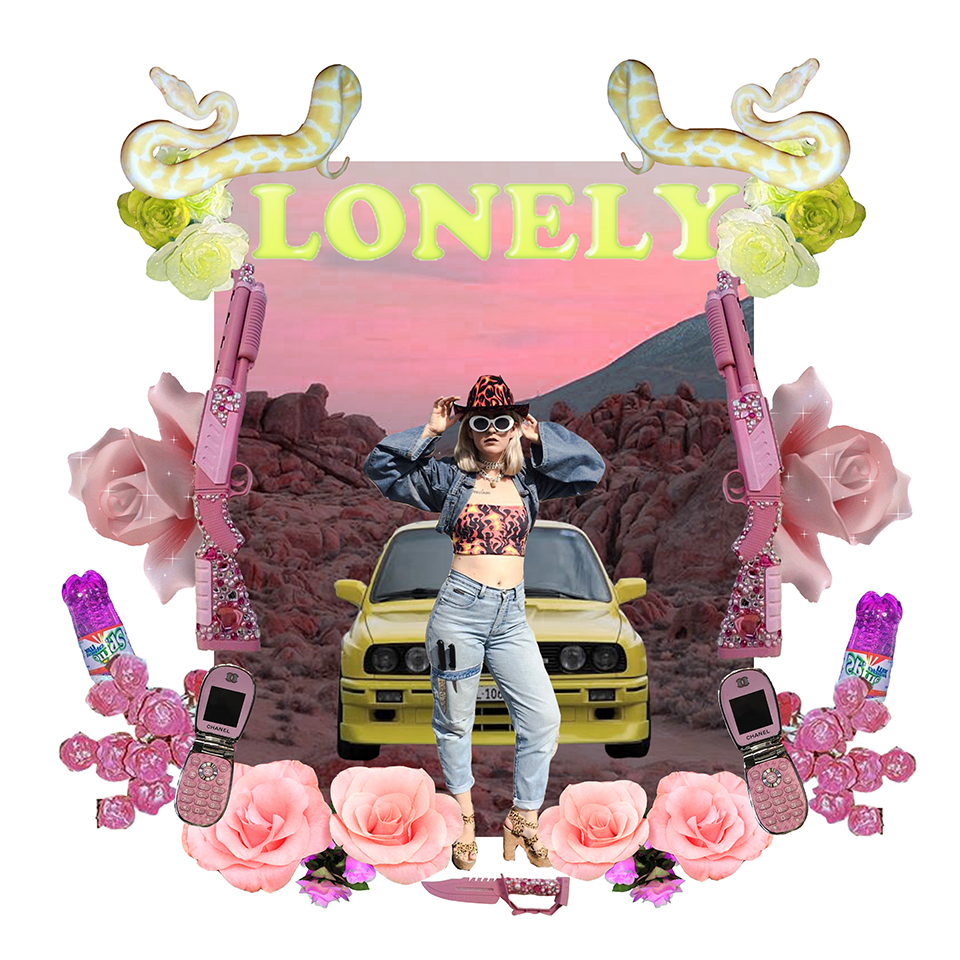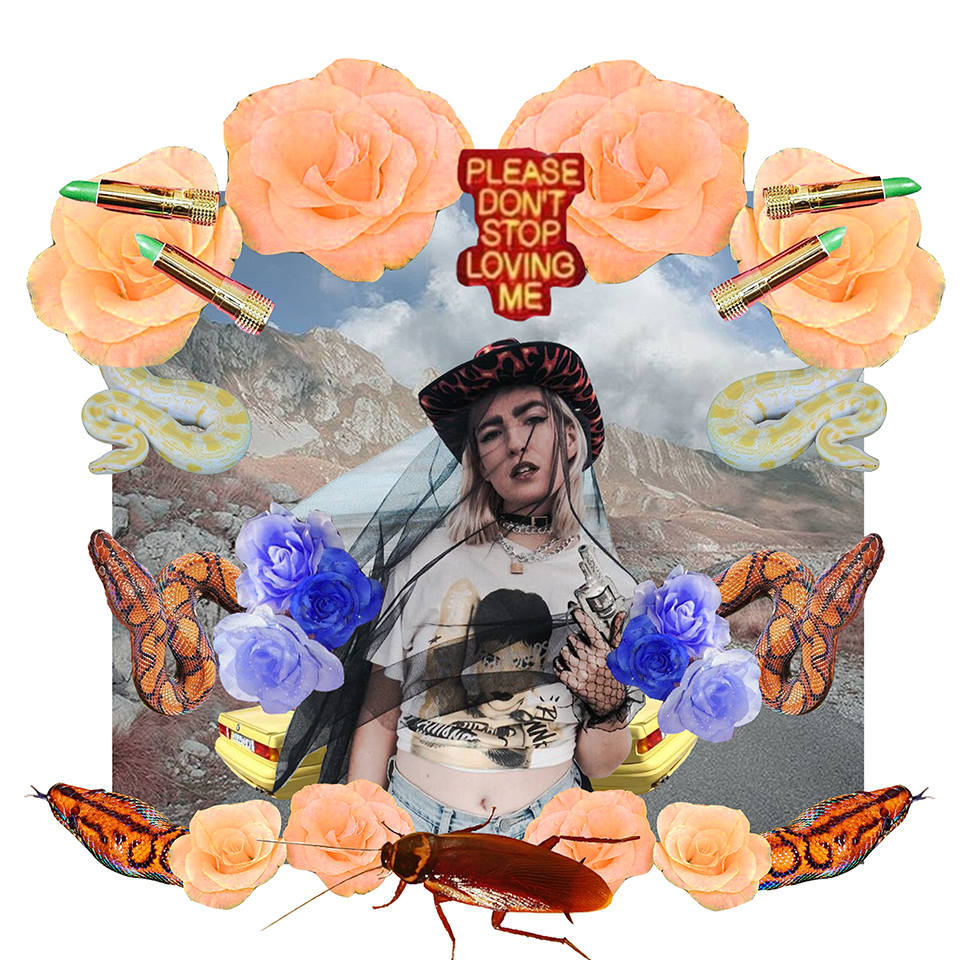In the pastel pink Wild-West of bejeweled flip-phones, albino pythons and shotguns Blünke Janse van Rensburg reigns kween. Soft sunsets merge into mountainous peaks and ravines. An imagined reality of unapologetic self-actualization. A space between nostalgia and now. An insertion of self into the visual imagery of the early 2000’s internet aesthetic. Trotse Tert explores digital space on her own terms.
Trotse Tert was spawned from the Afrikaans environment of Die Moot, Pretoria.“I was bored and very lonely, so I decided to create Trotse Tert and dedicate every moment in between nonsense to it. The name sounds a bit conservative but obviously it’s not. I could do much better at being a tart, it’s a time of exploring and not feeling ashamed of it. So it felt right and very applicable to call it exactly what it is I was trying to do.â€
Blünke describes her digital aesthetic as, “erg trashy, but trashy chic. Superficial and contradicting AF.†She was drawn to digital collage over its analogue ancestor because, “firstly, it’s less messy. I don’t have to spit and paste, although that is fun too, but no sticky fingers are involved. Secondly, it’s the possibility to create everything and anything. At this point in time, reality is really restricting, I can’t go where I want and I can’t have what I want, but in digital form it’s all mine. I take ownership of the things around me. I have it all there because I created it for myself. Thirdly, I’m such a forgetful person, I forget my passions and dreams when times get tough so the collages really helps to put things in perspective again.â€

Having graduated from the Elizabeth Galloway Academy of Fashion Design Blünke also engages in the space of fashion design. She considers each piece she creates, in fashion or collage as imbuing an alternative conceptual relevance. “Mostly it just reflects my feelings, dreams and desires while other times it’s just pretty nothingness. I also like to think that the collages speak for themselves. Everything I place in a collage means something to me. You are allowed to make your own assumptions on what everything represents.†She is interested in people’s own reflections and insights.
The ideological framework that Blünke draws on is rooted in a sense of self-acceptance. “Accepting who I am, alone, without anyone else,†is at the crux of it, “you could have really amazing and supportive people in your life that can believe in you endlessly, but you also have to motivate yourself, you have to believe in yourself to get up every day and work towards the things you want, the things that is needed to be done. That’s not easy. So it’s about truly and fully believing in oneself and realising its hard and sometimes very lonely. It also feeds on self discovery and innovation.”




